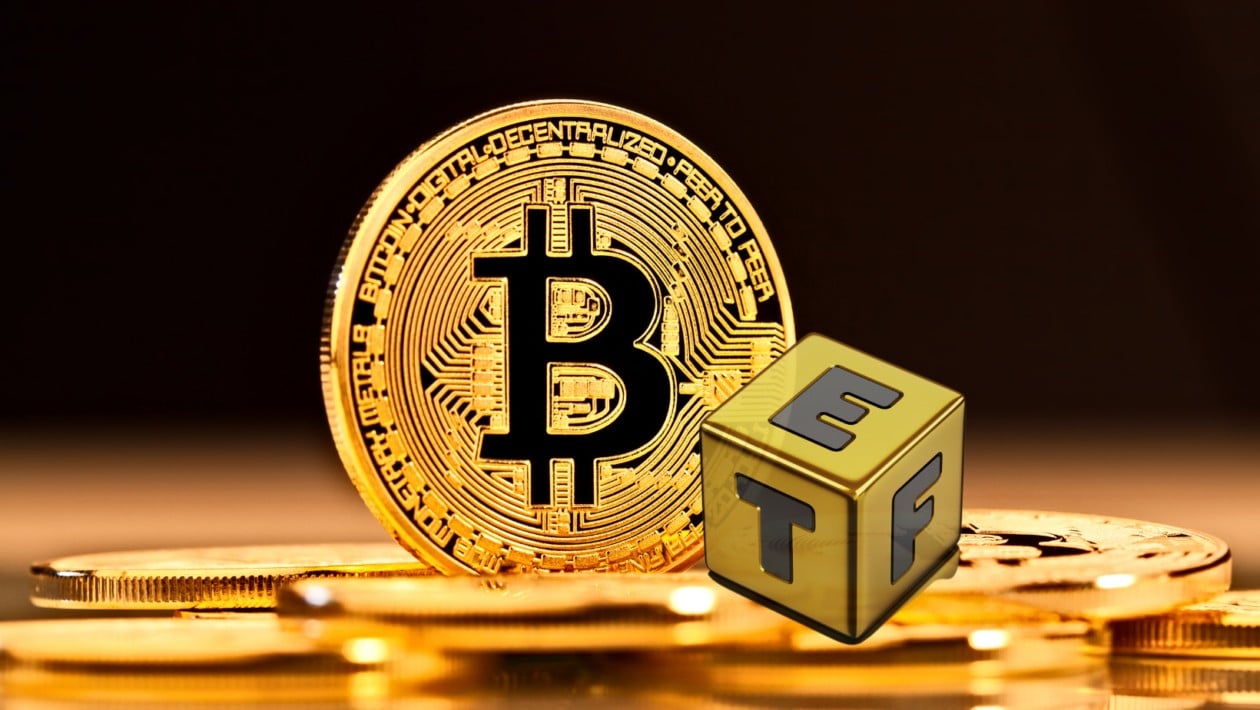As we navigate the year 2024, the digital landscape has been shaken by the phenomenal rise of Bitcoin (BTC), the undisputed leader in the cryptocurrency revolution. Just weeks ago, Bitcoin marked a significant milestone by surpassing the market capitalization of the social media behemoth, Meta (formerly Facebook). This achievement has propelled Bitcoin into a new echelon, with its sights firmly set on even more ambitious targets. The next frontier? Alphabet, the parent company of Google, a titan of the tech world. But the ultimate prize, a summit many consider near-mythical, is the undisputed king of safe-haven assets: gold. This unprecedented ascent has ignited a global conversation, sparking a firestorm of debate among analysts, investors, and cryptocurrency enthusiasts alike. The central question now hangs heavy in the air: can Bitcoin truly dethrone established tech giants and challenge the age-old dominance of gold in the global financial hierarchy?
Bitcoin’s Meteoric Rise
Bitcoin’s journey to its current position has been nothing short of extraordinary. Launched in 2009 amidst the global financial crisis, it emerged as a revolutionary concept – a decentralized, digital currency free from government or institutional control. The initial years were marked by skepticism and volatility. However, over time, Bitcoin garnered growing interest and adoption, particularly in the wake of high-profile endorsements and its perceived potential as a hedge against inflation and traditional financial uncertainties.
Related Article: Binance Blindsided: 1,200 BTC Whale Makes a Splash, Leaving a Trail of 63.2 Million Dollar Mystery (+7.51% Profit!)
The past year has been particularly fruitful for Bitcoin. The successful launch of several spot Bitcoin exchange-traded funds (ETFs) in North America is widely believed to have fueled this recent bull run. These ETFs provide a convenient and regulated way for institutional investors to gain exposure to Bitcoin without the complexities of directly acquiring and managing the cryptocurrency itself. This newfound accessibility has undoubtedly contributed to the surge in market capitalization, propelling Bitcoin into the realm of trillion-dollar assets.
Beyond the realm of Tech Giants
Having successfully surpassed social media giant Meta, Bitcoin now sets its sights on an even more formidable competitor in the tech arena: Alphabet, the parent company of Google. Alphabet currently stands tall with a market capitalization hovering just below $1.72 trillion, presenting a significant obstacle for Bitcoin to overcome. However, unwavering optimism persists among Bitcoin enthusiasts. They point to the cryptocurrency’s growing acceptance within the halls of mainstream finance, evidenced by the recent launch of Bitcoin ETFs and the increasing interest from institutional investors. This newfound legitimacy, they argue, could pave the way for even greater adoption, potentially fueling Bitcoin’s ascent to topple Alphabet.
But beyond the realm of tech titans lies the ultimate challenge: gold. For millennia, gold has reigned supreme as the world’s most coveted store of value. Its market capitalization, a staggering $14.7 trillion, dwarfs even the most bullish projections for Bitcoin’s future. Toppling this long-standing champion would be a monumental feat. It would require not only a sustained surge in Bitcoin’s price but also a fundamental shift in how investors perceive the cryptocurrency’s long-term value proposition. Bitcoin would need to not just compete with gold’s established reputation as a safe haven asset, but also overcome ingrained beliefs about its own volatility and relative novelty within the financial landscape.
The Case for Bitcoin: A Digital Store of Value
Advocates for Bitcoin’s continued rise point to several fundamental characteristics that position it as a compelling store of value in the digital age. One of the most crucial aspects is its limited supply. Unlike traditional fiat currencies, which central banks can theoretically print at will, Bitcoin boasts a predetermined maximum supply of 21 million coins. This scarcity is a core principle embedded within Bitcoin’s design, aiming to prevent inflation and safeguard its long-term value proposition. Investors drawn to the concept of a finite asset, immune to the inflationary pressures that can erode the purchasing power of fiat currencies, find significant appeal in Bitcoin’s capped supply.
Another key strength lies in Bitcoin’s decentralization. Unlike traditional financial systems heavily influenced by central banks and government regulations, Bitcoin operates on a decentralized network. This distributed ledger technology removes control from any single entity, fostering an environment of transparency and independence. This is particularly attractive to investors wary of centralized control and seeking alternatives to traditional, government-backed currencies. They view Bitcoin as a hedge against potential manipulation or instability within the existing financial system.
Furthermore, the Bitcoin network is secured by robust cryptography, making it exceptionally resistant to counterfeiting and hacking attempts. This robust security infrastructure, built upon complex cryptographic algorithms, instills confidence in investors by safeguarding the integrity of the Bitcoin network and ensuring the authenticity of each transaction within the system.
Finally, Bitcoin offers a level of transparency unmatched by many traditional financial instruments. All Bitcoin transactions are permanently recorded on a public, distributed ledger known as the blockchain. This complete transparency allows anyone to verify the history and legitimacy of any Bitcoin transaction, fostering trust and accountability within the network. This level of transparency stands in stark contrast to the opaqueness that can sometimes shroud traditional financial dealings.
Can Bitcoin Overcome the Hurdles?
The potential battle between Bitcoin and gold ignites a captivating debate between two titans of the store-of-value landscape. Gold, a millennia-old champion, boasts a rich history as a coveted commodity. Its tangible form, gleaming bars or shimmering coins, and its inherent scarcity have built a foundation of trust amongst investors for countless generations. Furthermore, gold’s accessibility is unmatched. From the security of physical vaults to the ease of exchange-traded funds, investors can readily acquire and trade gold in various forms. This accessibility, coupled with its relatively high liquidity, positions gold as a convenient and established hedge against inflation and economic uncertainty.
However, Bitcoin emerges as a revolutionary challenger, ushering in a new era of digital assets. Its innovative technology, the blockchain, and its decentralized nature, free from the control of any single entity, hold immense appeal for tech-savvy investors seeking an alternative to traditional financial systems. Yet, Bitcoin’s novelty comes at a cost – volatility. Unlike the time-tested stability of gold, Bitcoin’s price can fluctuate dramatically, making it a riskier proposition for those seeking a more predictable store of value.


